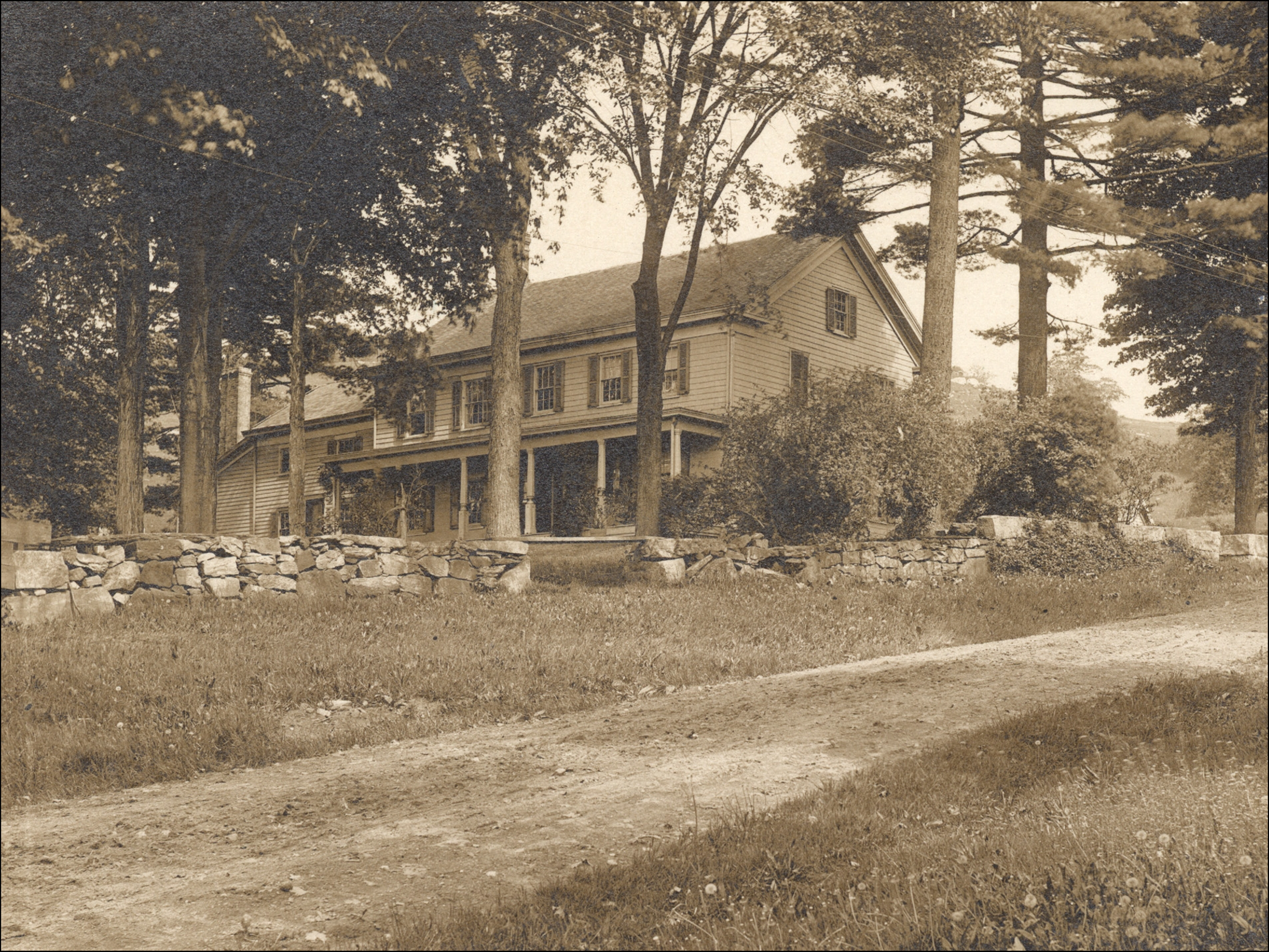Our Story (continued)
Edith and Karla met with county executives, brought in an expert on running an agency, found parents who were interested, and raised money to purchase the original Opengate property, a family-owned farm.
Opengate’s name derives from the white gates that originally opened onto the agency’s peaceful, wooded grounds. The property consisted of 27 acres, including an orchard, pond, workshops, school, gym, house, and the main building. Edith and Karla envisioned transforming the grounds into “small units with house parents” and that “some of our residents will learn skills that will enable them to hold jobs in the community, while others will work in the sheltered environment of the workshop or try their hand at gardening…providing an opportunity for meaningful occupation for all residents.” Most importantly, “It will be a home away from home where our children can live a useful life long after we are gone.”
Opengate launched with two houses and a handful of people, including Karla’s daughter, Joyce, and Edith’s son, Michael, who were both long-term residents. Karla’s daughter passed away after a long life at Opengate. Edith and her son moved to California after many years in New York.
Brian Hulten, Opengate’s former CEO, joined the agency in 1981 as a direct support professional and knew the founders well. He started out at the house where Karla’s daughter, Joyce, lived. The Gray House and Lissauer House are named after each of the founder’s families.
Change comes to services for people with intellectual developmental disabilities.
Opengate was ahead of its time in providing compassionate, respectful care for people with intellectual and developmental disabilities. Several years after Opengate was founded, rookie local reporter Geraldo Rivera and his camera crew entered Willowbrook State School in Staten Island, NY, exposing inhumane conditions, lack of care, and abuse of children and adults with intellectual and developmental disabilities. Willowbrook: The Last Disgrace earned him a Peabody Award, but more than accolades, it helped change the lives of the developmentally disabled community and the entire field for the better.
Geraldo has remained a champion for those with intellectual and developmental disabilities, and he has deep ties with Opengate. Opengate leadership decided to name a home after Geraldo in honor of his service to the field and reached out to him around the time of Opengate’s 50th Anniversary. He has since visited Opengate several times, been honored at an Opengate gala, and the Rivera House community-based residence is dedicated to him.
Opengate today—honoring its founders’ vision.
In over 50 years, Opengate has evolved into a premier community-based agency that continues to expand services and resources for those it supports. While staffing and funding challenges still exist today, the lessons learned from the past are not forgotten, and the Opengate team remains dedicated to their service of the most vulnerable.
Currently, Opengate supports about 150 people in its community-based residential and day services. Often residents transition from home, with many aging out of school-aged programs. Some have been at Opengate since its founding. Opengate is committed to providing dignity of life for all and often cares for people with behavior difficulties whom other agencies turn away. The agency has grown to include 13 community-based residences in several Hudson Valley neighborhoods, along with its day habilitation program in lower Westchester County, community habilitation, and supportive employment services.
The people who live at Opengate residences are drivers of their daily routines and are supported in developing independence, taking part in their community, pursuing new experiences, and exercising self-advocacy. They receive care around the clock from Opengate’s dedicated team, who ensure their homes are safe and comfortable—and that they are treated like family.
“It is a joy and an honor to help make a difference in the lives of the extraordinary people this agency supports. I am humbled every day by the generosity and kindness of our dedicated staff and by the tenacity of our residents and program participants who work so hard to overcome challenges every day. ”





